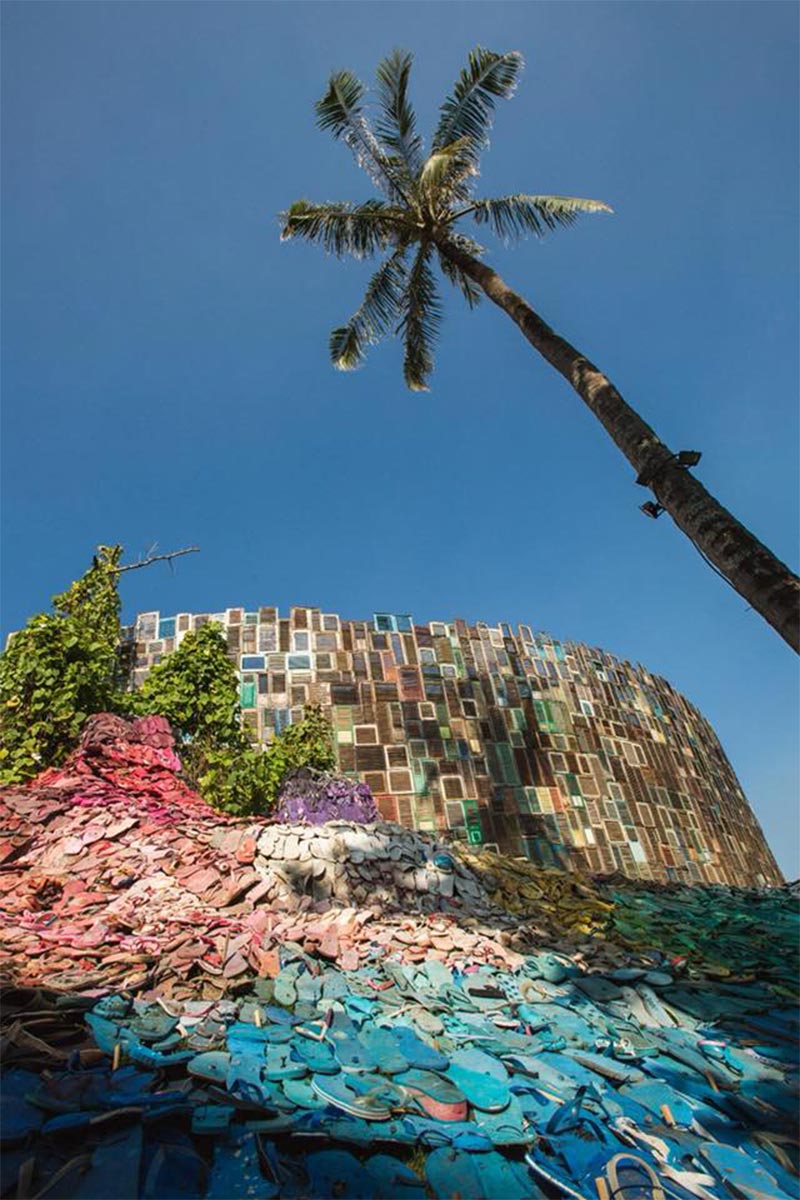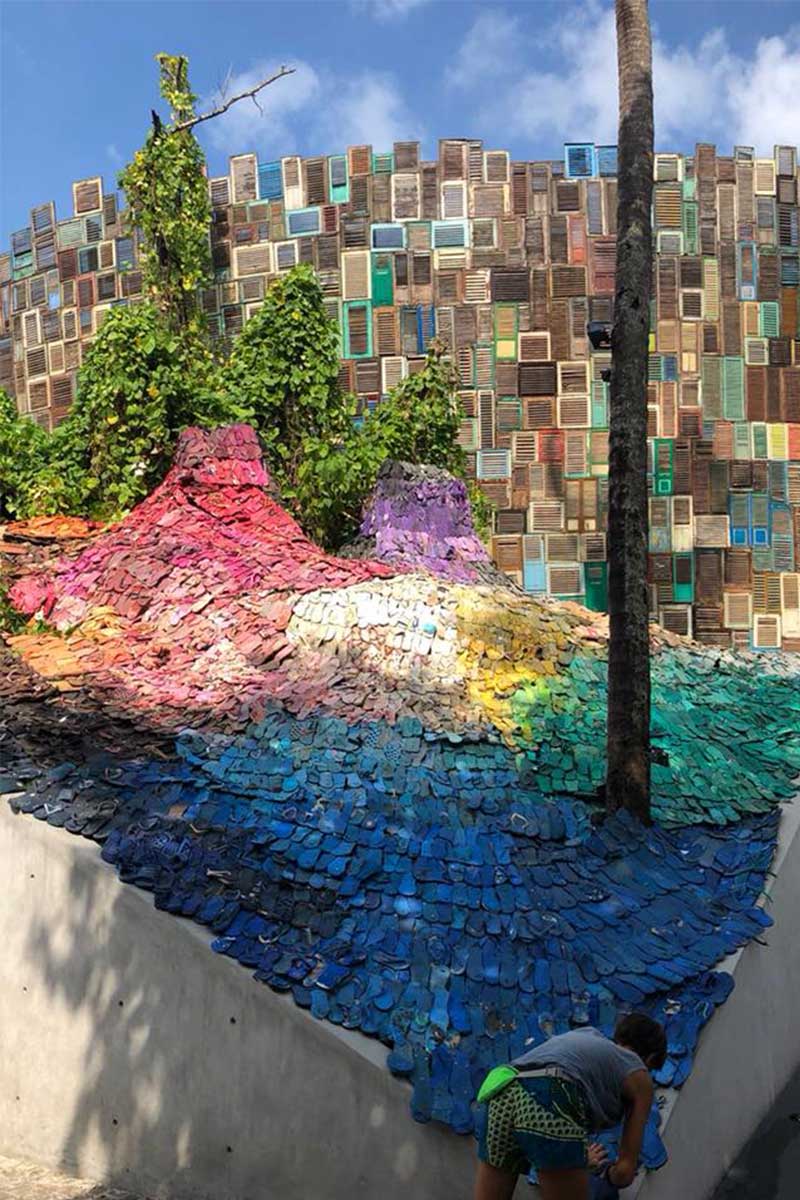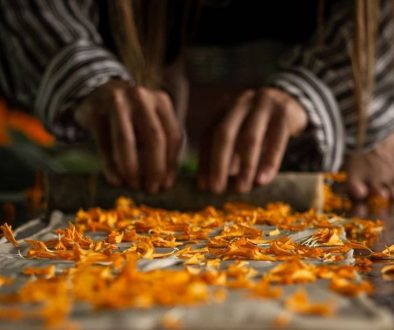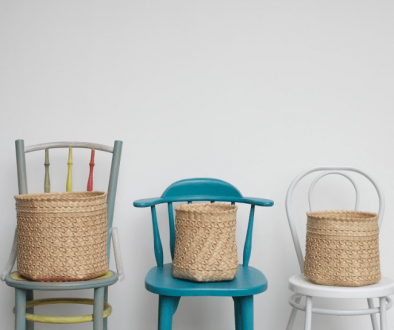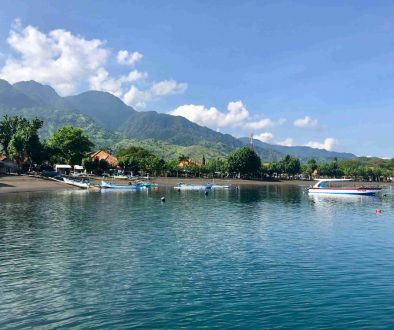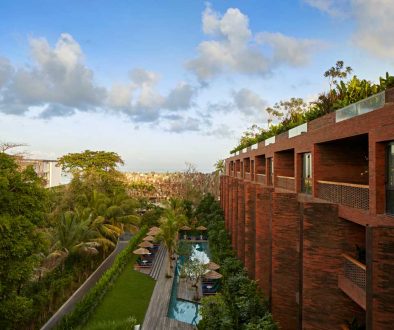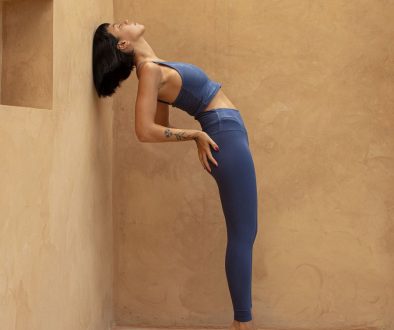Turning Rubbish into Rainbows
Liina Klauss’ Scrap Art
Blog feature for Potato Head, an Indonesia-based lifestyle and hospitality brand
Art activist liina klauss turns rubbish into rainbows through a multi-hued installation for Potato Head Beach Club, drawing attention to the ocean plastics crisis
As a little girl, liina klauss would stitch and glue together scraps of fabric left lying around the house by her mother, a fashion designer.
“There’s something about leftovers that attracts me. You can still make something out of them,” says the award-winning German artist behind “5,000 Lost Soles,” Potato Head’s summer installation and the latest in a series of large-scale sculptures constructed from debris.
Installed in Bali, the project was initially born on a remote Hong Kong beach during a family camping trip, where liina and her kids salvaged everything from medical waste and single-use packaging to plastic toys and discarded flip-flops.
“When you go to these remote beaches, it’s always the same situation: it’s insane normality!” says liina, who has found refrigerators, teddy bears, industrial piping and petrol canisters during her frequent coastal walks. Gobsmacked by the sheer volume of washed-up waste—and the lack of local media coverage about the issue—liina quickly got to work.
“I started laying everything out. It was very patient, calming work, it gave me this inner peace. I was able to transform this anger and helplessness into something beautiful that I could share with the world,” she says.
“I make the ugly look beautiful. I turn rubbish into rainbows. I paint the beach in saturated colours as if it’s a canvas—and people have started looking.”
Over the past seven years, liina has created more than 20 mandala-like installations in Hong Kong and now Bali, each forged with seashore-salvaged plastic trash over a canvas of sand. Liina tells us of her process, “I combine the plastic with natural materials like driftwood, shells and butterfly wings. That’s the problem, that it’s all mixed up, it’s not separated.”
Exposing the uncomfortable truth about ocean plastics—and our role in it—has become her overriding mission: “I make the ugly look beautiful. I turn rubbish into rainbows. I paint the beach in saturated colours as if it’s a canvas—and people have started looking.” Her work is propelled by a deep-rooted love of nature, forcing the ugly reality—so often brushed under the sand—to the surface, with her “Lost Soles” campaign calling into question our own role in the predicament.
Her flip-flop fixation—and the Lost Soles campaign—were a natural progression. Plastic sandals, worn by rich and poor alike all around the world, became the artist’s tool to bring each of us closer to the litter crisis.
“We still don’t make that connection that it’s ours. We still think it’s the person next to us,” says liina.
Enlisting local school children and community groups to help with her curated beach cleanups means that the public encounters the severity of the problem firsthand. In turn, the increased task force has allowed for bigger and more ambitious installations.
“I want to show people a different perspective on what we consider ‘rubbish.’ Everything we throw away comes back to us—via the air we breathe, the water we drink, and the soil we grow crops and raise animals on,” she notes. “We are a bit lost at the moment—we’ve lost sight of what’s important. Is it more important to have 15 pairs of shoes in your cupboard or to be able to walk barefoot on a beach?”
Launched in May, “5,000 Lost Soles” is liina’s most ambitious project yet: a multi-hued, wave-shaped installation in collaboration with Potato Head. Constructed with more than 5,000 plastic sandals—all collected from beaches around Bali’s west coast—the eye-catching sculpture will be on display at the entrance to the Beach Club for the entire summer season, intended to highlight the global issue of ocean plastics.
